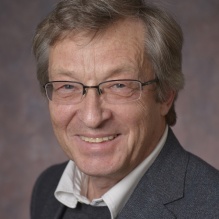Alexander Neimark
Distinguished Professor
Rutgers University
Chemical and Biochemical Engineering
Adsorption-Induced Deformation of Nanoporous Materials: from Human Hair to Breathing Solids
Abstract
Guest molecules adsorbed in pores of a solid body exert substantial stress on the host matrix that causes its swelling or contraction depending on the nature of host-guest interactions. This phenomenon, known as adsorption-induced deformation, has been known for a long time since Leonardo da Vinci’s studies of water sorption on human hair. Various manifestations of adsorption-induced deformation are currently actively explored with respect to the design of novel nanoporous adsorbents and membranes for hydrocarbon separation, actuators, nanobumpers, energy storage devices, as well as the enhancement of gas recovery from shales and carbon dioxide sequestration in coal mines. Despite of the evident importance of the deformation effects during adsorption-desorption cycles, a rigorous theoretical description of this phenomenon is lacking. I will present a general thermodynamic approach to predicting adsorption stress and respective deformation in nanoporous materials of different origins based on molecular models of adsorption within elastic nanoscale confinements. Examples include metal-organic frameworks (MOFs), microporous carbons and zeolites, mesoporous crystals, coal, and hierarchical micro-mesoporous carbon and silica monoliths.
A special attention will be paid to the peculiar "breathing" behavior of MOFs during gas adsorption-desorption cycles. Unlike most materials that expand on adsorption (akin to inhaling) and contract on desorption (akin to exhaling), some microporous solids undergo atypical "inhaling/exhaling" transitions, contracting when adsorbing gas and expanding upon release. These breathing MOFs are being extensively investigated for applications in actuators, sensors, selective adsorbents, and drug delivery systems.
Bio
Dr. Alexander V. Neimark is a Distinguished Professor of Chemical and Biochemical Engineering at Rutgers University. With a Doctor of Science degree from Moscow State University, he worked at the Institute of Physical Chemistry of Russian Academy of Sciences. After receiving Humboldt fellowship in 1992, he worked at Mainz University (Germany) and then held visiting positions at CNRS (France), and Yale University (USA). Before joining Rutgers in 2006, he led the Center for Modeling and Characterization of Nanoporous Materials at TRI/Princeton in 1996-2006. His research interests span thermodynamics, statistical mechanics, and molecular modeling of adsorption, transport, and interfacial phenomena in nanoporous materials and nanostructuredsoft matter systems. He is a recipient of many national and international awards and honored appointments, including Guggenheim Fellow, Blaise Pascal International Chair, Humboldt Fellow, Fellow of American Institute of Chemical Engineers, Fellow of International Adsorption Society, Distinguished Visiting Fellow of the Royal Academy of Engineering, and Leverhulme Professorship. He is a recipient of many national and international awards and honored appointments, including Guggenheim Fellow, Blaise Pascal International Chair, and Distinguished Visiting Fellow of the Royal Academy of Engineering, among others. He published 290+ research papers with 38,500+ citations and Hirsh index h=76.
Wednesday
April 10, 2024

Alexander Neimark
Distinguished Professor
Chemical & Biochemical Engineering
Rutgers University
- Time: 11:00 AM
- Location: 206 Furnas Hall